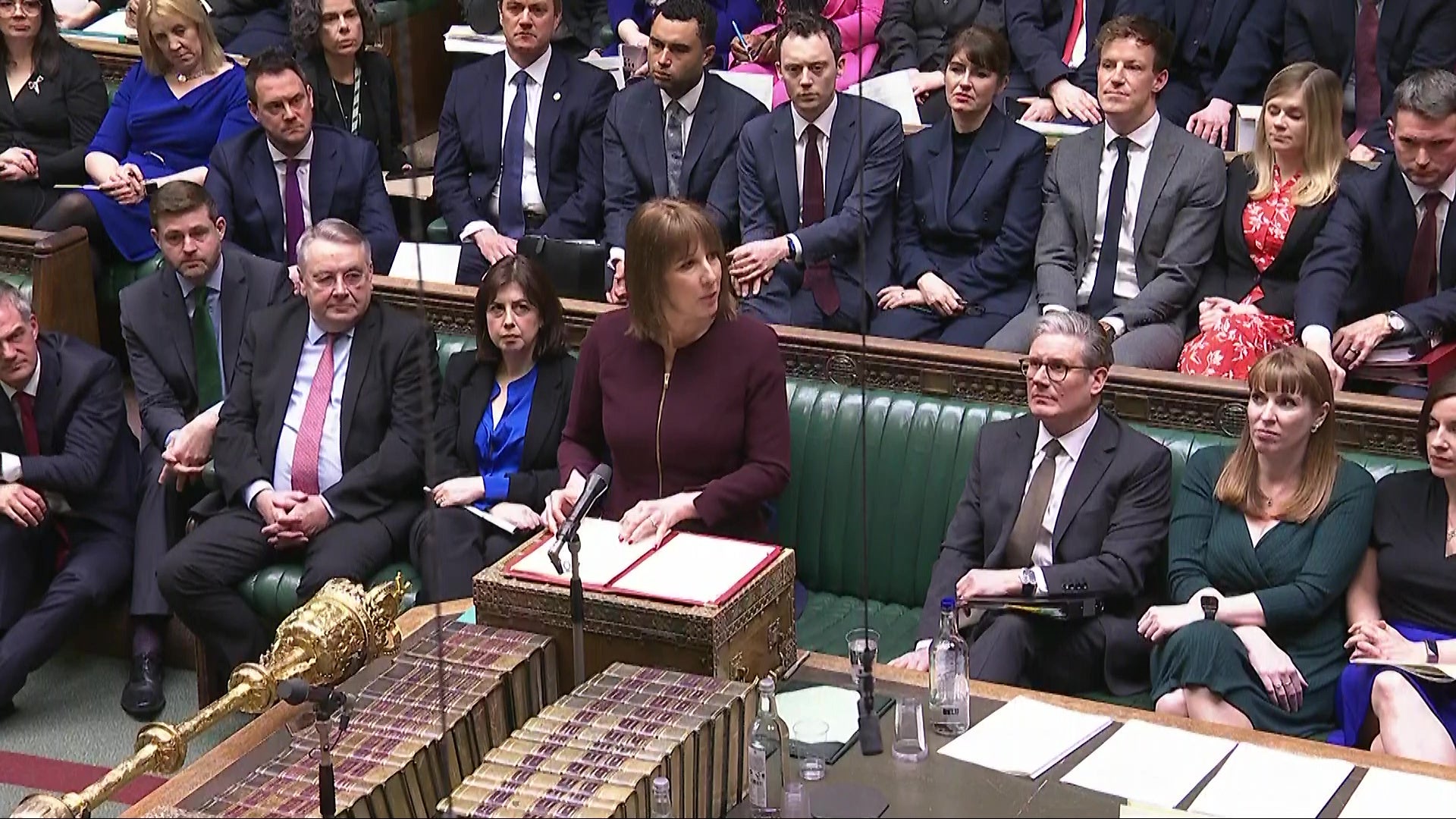Reeves’s benefit cuts to plunge 250,000 people into poverty, government admits
There was outrage as the chancellor announced yet more welfare cuts which are now set to affect 3.2 million families
Rachel Reeves is facing a backlash from Labour MPs after the government’s own impact assessment revealed that benefit cuts will push 250,000 more people, including 50,000 children, into poverty.
There was outrage as the chancellor used her spring statement to announce yet more welfare cuts which, according to the Department for Work and Pensions (DWP), are now set to impact 3.2 million families.
Back bench MPs said that they would vote against the measures and angry critics contrasted the chancellor’s “austerity cuts” for the poorest to recent controversies over her acceptance of £7,500 from a friend to buy clothes and free tickets to a Sabrina Carpenter concert.
Labour MP Bell Ribeiro-Addy led the charge, declaring she would vote against them – and in a call to arms – said no Labour MP should be “voting to push children into poverty”.
The row came amid gloomy economic news, with the financial watchdog, the Office for Budget Responsibility (OBR), confirming it had halved the UK’s growth forecast from 2 per cent to 1 per cent for the next year. And while estimates on growth were increased for following years they were still cumulatively less than predicted just six months ago when Ms Reeves gave her Budget.
The OBR also warned that tariffs set to be imposed by Donald Trump next week could wipe out those growth estimates, along with Ms Reeves’s fiscal headroom of £10bn.

The Institute for Fiscal Studies (IFS) also sounded the alarm, warning that extra borrowing of £50bn in the next five years will “inevitably” lead to more tax rises.
The chancellor was forced to announce extra cost saving measures on Wednesday after the OBR said her previously announced benefit cuts would save £3.4bn instead of the £5bn she hoped for. The health element of universal credit will be frozen for existing claimants until 2029-30 and will be approximately halved to £50 for new claimants in 2026-27.
While Ms Reeves took comfort from the OBR pricing in the government’s housebuilding policy for delivering growth by 2030, its chair Richard Hughes was dismissive, noting it was “just 0.2 per cent by the end of the five-year period” and “makes very little difference”.
The chancellor also hailed OBR estimates that people would be better off by an average of £500 a year by the end of the parliament, when the watchdog instead suggested they would in fact be poorer.
While day-to-day spending was unchanged, the number of extra big-ticket items the government needs to fund means there is average departmental real terms cut of 0.8 per cent.
But it was on welfare that the chancellor had the biggest pushback as she clashed with Labour backbenchers in the chamber.
Neil Duncan-Jordan, Labour MP for Poole, said: "Isn't it time we ask those with the broadest shoulders to carry the heaviest burden, rather than the poorest in our society?"

Ms Reeves replied: "The Office of Budget Responsibility in their numbers, don't assume any changes in terms of people going back to work. That's what we're going to work on with the OBR, the DWP and Treasury over the summer, so that we develop those plans to ensure that people aren't worse off, but they're actually better off because they can progress into jobs that suits their abilities and needs."
Earlier, Labour MP for Nottingham East Nadia Whittome asked: "What is the justification for cutting disability benefits – especially when a third of disabled people are already in poverty – instead of choosing to tax the growing wealth of the super-rich?"
But the government’s own assessment of the cuts was arguably the most damning, revealing 250,000 more people will be pushed into poverty by the end of the decade.
The figures, which also reveal that 3.2 million families will lose out by an average of £1,720 a year, risk reigniting a Labour rebellion over the changes.
Suspended Labour MP Zarah Sultana, who now sits as an independent, hit out at the chancellor, who she said was earning more than £150,000 and recently took “freebie tickets to see Sabrina Carpenter”.
Debbie Abrahams, the Labour MP who chairs the Commons work and pensions committee, told the chamber the cuts would lead to “increased poverty, including severe poverty, and worsened health conditions as well. How will making people sicker and poorer help in terms of driving our economy up and people into jobs?"
Richard Burgon, a former shadow Treasury minister, accused his government of making an “especially cruel choice” and Labour MP for Liverpool Riverside Kim Johnson also announced she would vote against the measures.
Ms Reeves insisted that the government had "inherited a broken" welfare system in which one in eight young people are not in employment, education or training.
She insisted that the impact assessment did not take into account the impact of the government’s “back to work” policy, which was expected to “mitigate the poverty impact".
Under the plans, ministers will invest in getting people back to work, pledging “guaranteed, personalised and targeted support”. Welfare claimants will also be given a “right to try” work, without risk of losing their benefits, as part of Labour's overhaul of the system.

Think tanks and charities from the left and right also questioned whether the chancellor had a real plan or was just “tinkering”.
Centre for Social Justice (CSJ) policy director Ed Davies said: “The chancellor was right to say that repairing the welfare system requires ‘hard yards’ and ‘long-term decisions’ but by tinkering with it in the hunt for short-term cash, she is not helping those on benefits or the taxpayers funding them.”
Ruth Curtice, chief executive of the Resolution Foundation, said that while reform to health and disability benefits is needed, “the scale and last-minute nature of many of the changes announced today suggest that long-term change is playing second fiddle to short-term savings".
Helen Undy, chief executive of the Money and Mental Health Policy Institute, said the cuts amounted to “another hammer blow for people who are struggling with their mental health and finances”, and Action for Children’s head of policy and research, Julia Pitman, hit out at the news they would push more children into poverty.
“The government has previously described increases in child poverty since 2010 as ‘shameful’, yet we now know from its own analysis that its cuts to the social security system will condemn 50,000 more children to a life of poverty by the end of the decade,” she said.
On the overall strategy Paul Johnson, director of the IFS, was scathing, noting that extra borrowing will eventually lead to higher taxes.
He said: “It’s striking that, despite the cuts to spending plans announced today by the chancellor, the government will still be borrowing almost £50bn more over the next five years than was expected back in the autumn.
“In the short term, that reflects disappointing economic growth and tax revenue in recent data releases. In later years, it also reflects higher debt interest spending – up by £10bn in the final year of the forecast, in large part because of higher expected interest rates.”
Join our commenting forum
Join thought-provoking conversations, follow other Independent readers and see their replies
Comments
Bookmark popover
Removed from bookmarks